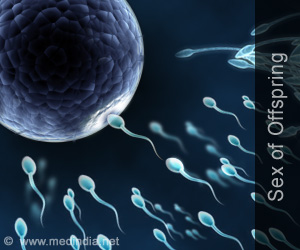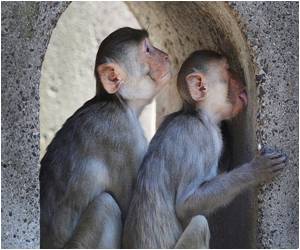Humans and other primates burn 50% fewer calories each day than other mammals, shows a new research.

The study also reports that primates in zoos expend as much energy as those in the wild, suggesting that physical activity may have less of an impact on daily energy expenditure than is often thought. Most mammals, like the family dog or pet hamster, live a fast-paced life, reaching adulthood in a matter of months, reproducing prodigiously (if we let them), and dying in their teens if not well before. By comparison, humans and our primate relatives (apes, monkeys, tarsiers, lorises, and lemurs) have long childhoods, reproduce infrequently, and live exceptionally long lives.
Primates' slow pace of life has long puzzled biologists because the mechanisms underlying it were unknown. An international team of scientists working with primates in zoos, sanctuaries, and in the wild examined daily energy expenditure in 17 primate species, from gorillas to mouse lemurs, to test whether primates' slow pace of life results from a slow metabolism. Using a safe and non-invasive technique known as "doubly labeled water," which tracks the body's production of carbon dioxide, the researchers measured the number of calories that primates burned over a 10 day period.
Combining these measurements with similar data from other studies, the team compared daily energy expenditure among primates to that of other mammals. "The results were a real surprise," said Herman Pontzer, an anthropologist at Hunter College in New York and the lead author of the study. "Humans, chimpanzees, baboons, and other primates expend only half the calories we'd expect for a mammal.
To put that in perspective, a human – even someone with a very physically active lifestyle – would need to run a marathon each day just to approach the average daily energy expenditure of a mammal their size. "This dramatic reduction in metabolic rate, previously unknown for primates, accounts for their slow pace of life." All organisms need energy to grow and reproduce, and energy expenditure can also contribute to aging.
The slow rates of growth, reproduction, and aging among primates match their slow rate of energy expenditure, indicating that evolution has acted on metabolic rate to shape primates' distinctly slow lives. "The environmental conditions favoring reduced energy expenditures may hold a key to understanding why primates, including humans, evolved this slower pace of life," said David Raichlen, an anthropologist at the University of Arizona and a coauthor of the study. Perhaps just as surprising, the team's measurements show that primates in captivity expend as many calories each day as their wild counterparts.
Advertisement
"Dynamic accredited zoo and sanctuary environments represent an alternative to traditional laboratory-based investigations and emphasize the importance of studying animals in more naturalistic conditions." Results from this study hold intriguing implications for understanding health and longevity in humans. Linking the rate of growth, reproduction, and aging to daily energy expenditure may shed light on the processes by which our bodies develop and age.
Advertisement
Source-Eurekalert














